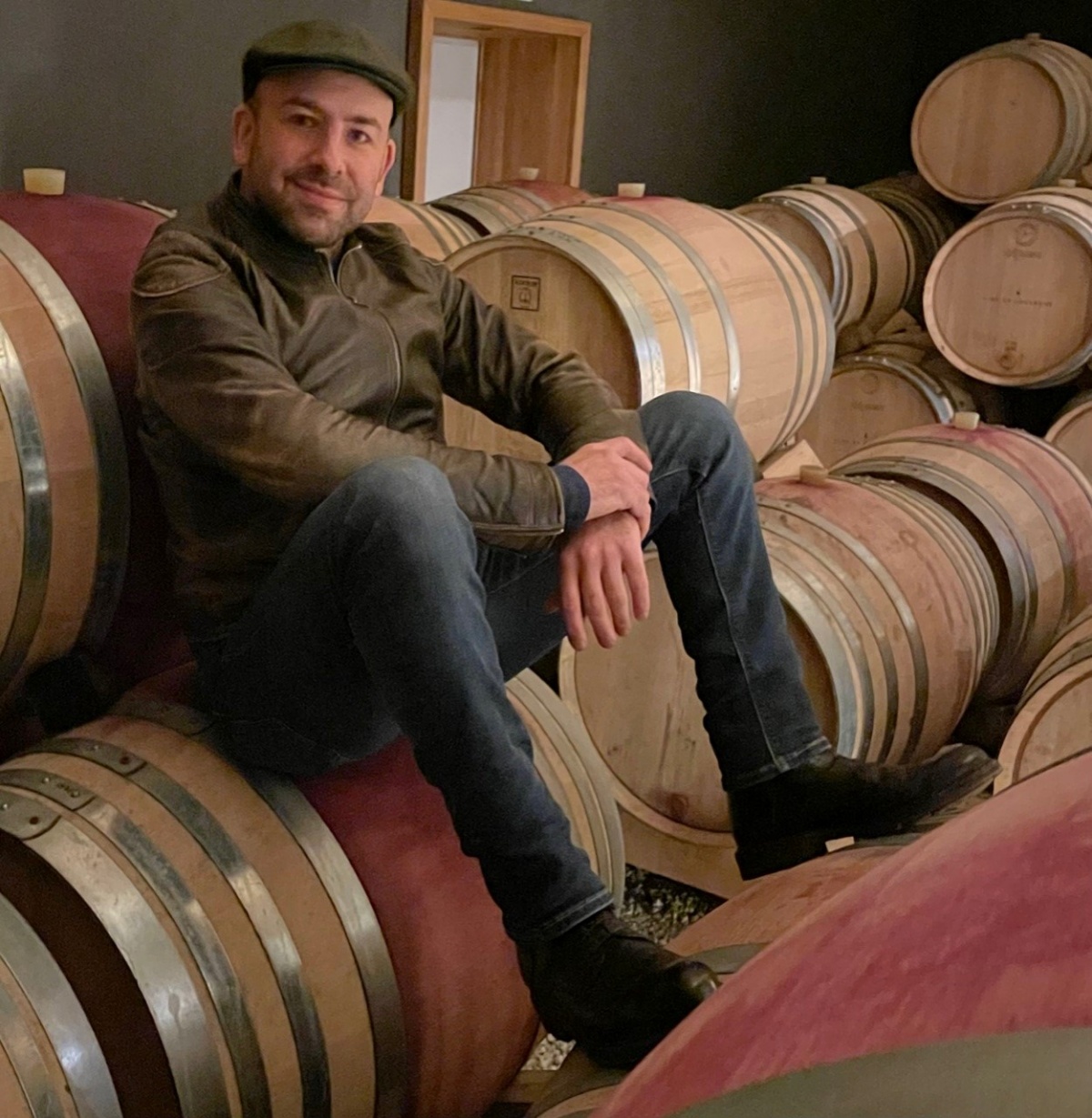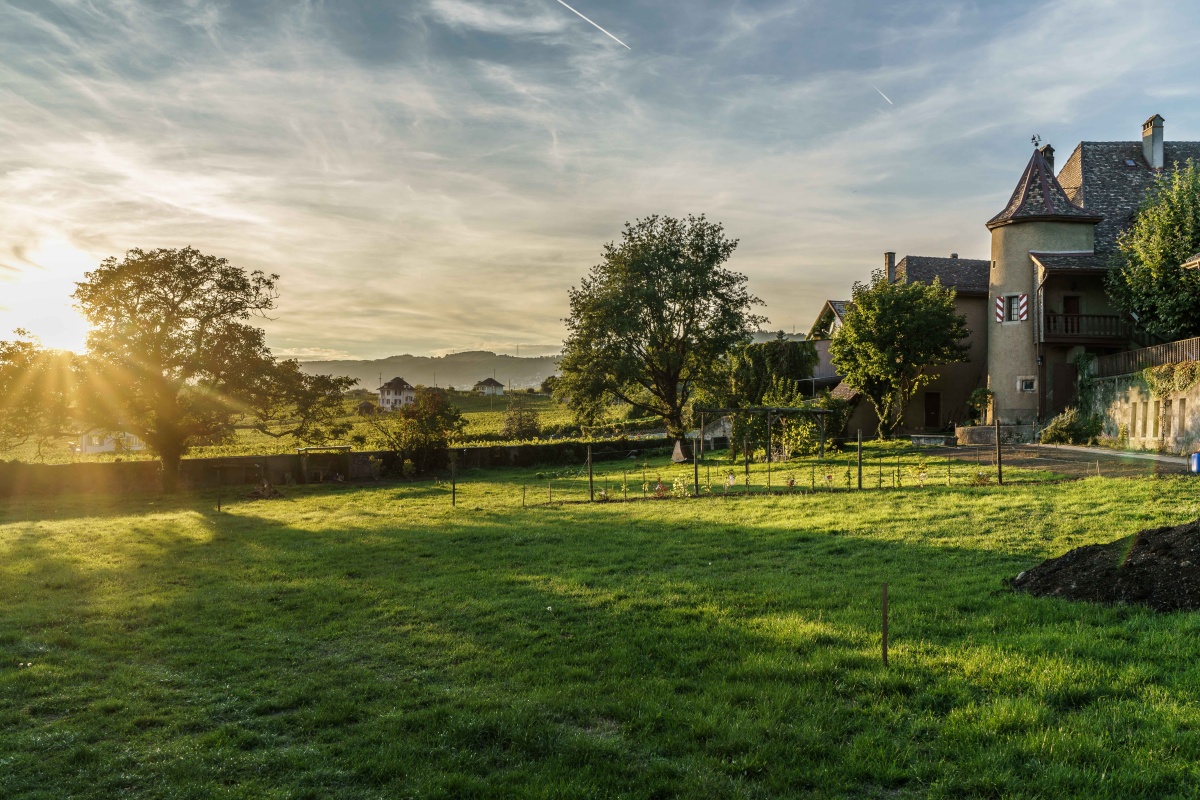by Natalie Halt
The Ville de Lausanne has been at the forefront of reducing its environmental footprint for over a decade. Their centuries-old vineyards are no exception. Enrico Antonioli is a grower/winemaker at Château Rochefort who is behind our city’s biodynamic efforts on the wine front.
Enrico Antonioli is a jack of all trades. The vineyards he tends in Mont-sur-Rolle have been producing wine since 982 AD, and exclusively for the “Ville de Lausanne” since 1802. An Italian immigrant with a Master’s in International Management, Enrico is no stranger to understanding the complexity of many moving parts. He is primarily involved in the vineyard where he firmly believes that the true quality of the wine begins. He additionally has a hand in the way the grapes are harvested, pressed, fermented, aged, and bottled.
His was a ground-level start, not the 4th, 5th, and 6th generation stories so surprisingly common in these parts. Enrico chose this line of work because of his passion for being in communion with nature. He tells me, “Making wine is an act of generosity.” Generosity for the needs of the grapes, the vines, and the grower but also generosity for the social moment that is created when we share wine together. He says that pairing the moment with the wine is sometimes even more impactful than its pairing with food. Generosity, for Enrico, also means being pragmatic. As a biodynamic grower, he must be in constant exchange with his surroundings, ready to react at any given moment and working with what he has, not exclusively with what he thinks. For him, making wine is an act of human hands and is an art that he holds in the highest of esteem. When you taste Enrico’s wines, there is a familiarity to them. He is deeply personal when it comes to talking about these wines, which he crafts with meticulous precision. They also have this curious element of surprise, one of the most emotional pieces of the process for him. And the names of his cuvees are also surprising, my favorite of which is called, “Rouge Sans Fard,” meaning“bare-faced” or “without makeup” because of it being such a pure expression of the grape. No lipstick required.
“Making wine is an act of generosity.”

In one of his Chardonnay plots, he picks up a large clump of his adored soil (it truly is beautiful the way that growers look at their dirt) and shows me the “hairy” roots sprouting from the bottom. “These are miniature roots that absorb minerals that are not readily bioavailable,” he tells me. “A plant has no metabolism. It is dependent on everything around it and everything around it creates the structure of the soil. This is how we add fertility to the soil, and this is how we make good wine.”
If there is no balance in the soil, if there is no nourishment from cover crops growing around the vines, if there is no understanding of the needs of the vine and the grapes to begin with, the process of winemaking cannot “fix” what did not begin in integrity. We walk through the vines and Enrico shows me wheat, seigle, oats, clover, and beans all trodden by foot between the vines. I slide my hand beneath what looks like weeds and feel soil, cool to the touch. I realize that this is what he means by working with the elements to create good structure. The fallen weeds are like a built-in air conditioner for the soil! We switch topics to the somewhat divisive intricacies of what it means to be a “natural” wine producer. As a 100% Demeter-certified biodynamic wine producer himself, Enrico is very familiar with what it means to grow “naturally.” And yet, he still believes that because wine is inevitably made with human hands, it inevitably has human intervention. It just must be the right kind of intervention. And avoided at all costs by decisions made, you guessed it, in the vineyard.
If there is no balance in the soil, if there is no nourishment from cover crops growing around the vines, if there is no understanding of the needs of the vine and the grapes to begin with, the process of winemaking cannot “fix” what did not begin in integrity.


What is most intriguing about spending time at Château Rochefort is his choice to replant with grapes that can better handle the increasing rise in atmospheric temperature. He stops at another plot and shows me where has grafted Syrah onto rootstock where Chasselas once grew. Syrah is typically grown in intensely hot wine regions. He also points out tender baby shoots of Merlot, another variety better suited to warmer temperatures than say, a fragile Pinot Noir. We experienced the canicule in June this year. The grapes he is choosing can handle this type of intensity, in the end, a wise business choice indeed.
You can find Château Rochefort and its lovely tasting room, Chez Michel, in the vielle ville of Allaman. Not far up the hill in Mont-sur-Rolle are the vineyards where you will find Enrico and the rest of the Château Rochefort team: Claude, Fernando, and Antonio in the vines and Sophie in the cellar.
Interested in discovering more about Lausanne’s efforts to become a more sustainable, biodynamic, and durable city? Watch this video.
Catherine Cruchon and the Legacy of Swiss Biodynamic Wine
Learn about how the Cruchon family is considered one of the most significant influences on the natural wine movement in Switzerland today.
Click Here
